
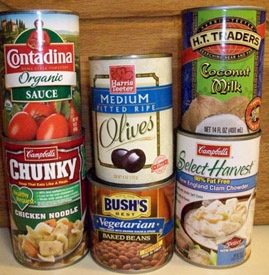 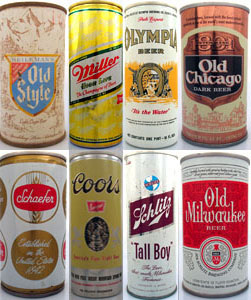 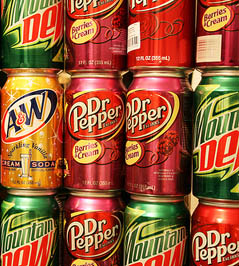 |
-by Susan Baylies
I put together this page as an overview of what I have found about BPA
on the internet. For info on various kinds of plastic bottles and their
risks, see my Plastic
Bottles Overload page.
BPA (Bisphenol-A)Is it really dangerous?Hundreds of scientific and academic studies have been done since the 1980's which indicate problems, but other studies, primarily those conducted by the plastic and chemical industries, find an allowable dosage to be harmless.
Not just another carcinogen, BPA affects your reproductive system. ouch! Bisphenol A is a xenoestrogen, a known endocrine disruptor. Xenoestrogens mimic real estrogen, but they disturb the hormones and reproductive systems in our bodies. Some studies have linked synthetic xenoestrogens to breast cancer and uterine cancer in women; problems for men may be decreased testosterone levels, lower sperm counts, increased risk of prostate cancer, and for girls, early onset puberty (as young as eight), and possible developmental damage to babies and toddlers. Is it in anything I use? BPA is used as a lining in all canned foods and beverages in the USA. Sodas, beer, soups, etc.
Those nice colorful hard plastic bottles made of lexan (polycarbonate plastics) with the #7 recycling symbol, may leach BPA (Bisphenol A). Most plastic baby bottles, child sippy cups and pacifiers contain BPA, as well as the canned infant formula. However, since Canada banned all child products with BPA in April 2008, Wal-Mart has decided to discontinue manufacture and sale of those products. The Nalgene company is phasing out BPA plastics, but if you already have one, like the refillable bottles on the right, it may contain BPA. There are now plastic baby bottles for sale that advertise that they are BPA free, such as these below from Tykecoons 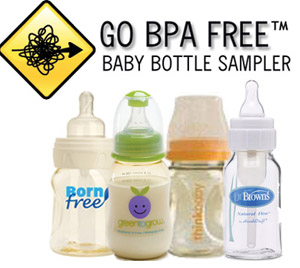 According to Dr. Gina Solomon, no. She contacted the Brita company and the company representative said the top white part is 100% polypropylene, and the bottom clear reservoir is 100% styrene acrylonitrile, neither of which contain BPA. I don't know anything about safety studies of those materials, but I always fill my Brita with cold water, so I am assuming it's safe. What is the safest option? Glass or ceramic containers are the safest. Some people use stainless steel, but my memory of metal taste in my canteen puts me off. I drink filtered tap water (I use Brita, but there are lots of others). The Pure Water 2Go company makes a portable water bottle with a built-in filter. They are made with PET #1 plastic which they say is safe (FDA approved food-grade plastic), but I think glass is safer, so you'll see me with an old Snapple bottle. (Re-use is even better than recycle). Certainly stop heating stuff in the microwave in plastic containers! The BPA and other harmful chemicals leach out much more when heated. The National Toxicology Panel recommends avoiding microwaving food in plastic containers, putting plastics in the dishwasher, or using harsh detergents, to avoid leaching. |
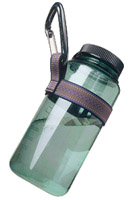 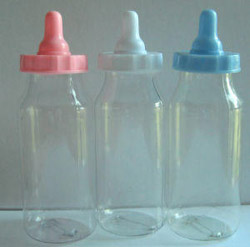 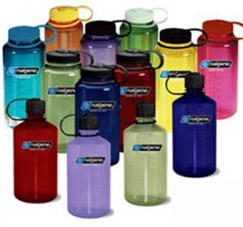 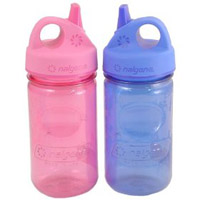 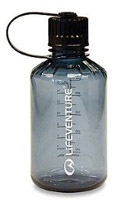 |
|
BPA in the News: Public Opinion
Leads to Legislation
California Assemblymember Fiona Ma (D-San Francisco), and
actress Amy Smart speak about the successful ban against phthalates in
children's toys, and the need to keep fighting for elimination of BPA
in children's products. (Try not to look at the guy picking his nose
behind her, heh.)The legislation she referred to was the updated Consumer Product Safety Improvement Act of 2008 which became a federal law in July, 2008. It bans phthalates and lead from all children’s products, but puts no restrictions on BPA. |
|
|
Concerns about BPA Around the
World
|
| Bisphenol-A and chemicals found in
baby bottles (Part 1/2) 9:25 |
| Bisphenol-A and chemicals found in
baby bottles (Part 2/2) 5:45 The initiative in California to ban BPA did not pass, however, children's products containing BPA have been banned in San Francisco, Chicago, and Connecticut. |
| Which plastics are OK and which
are dangerous to your health? The safety of plastics depends on more than their physical make-up, but the numbers in the triangles can help you decide what to avoid. As far as I can tell, all plastics can leach depending on many factors, such as temperature, age of the material, exposure to acids (vinegar, tomato sauce), some detergents, or abrasion ( scrubbing the surface). The Container Corporation of Canada has this guide to the chemical make-up of each number, but remember they are in the business of selling packaging. |
| Bonnie
Penner gives this bottom
line in her article, Are Plastic Water Bottles Safe? Less Leaching Plastic: #2, 4, & 5 More Leaching Plastic: #1, 3, 6, & 7 I would put #7 as the worst, since it may contain BPA. |
Better (less leaching):
|
Worse (more leaching):
|
Worst of all (BPA):
|







